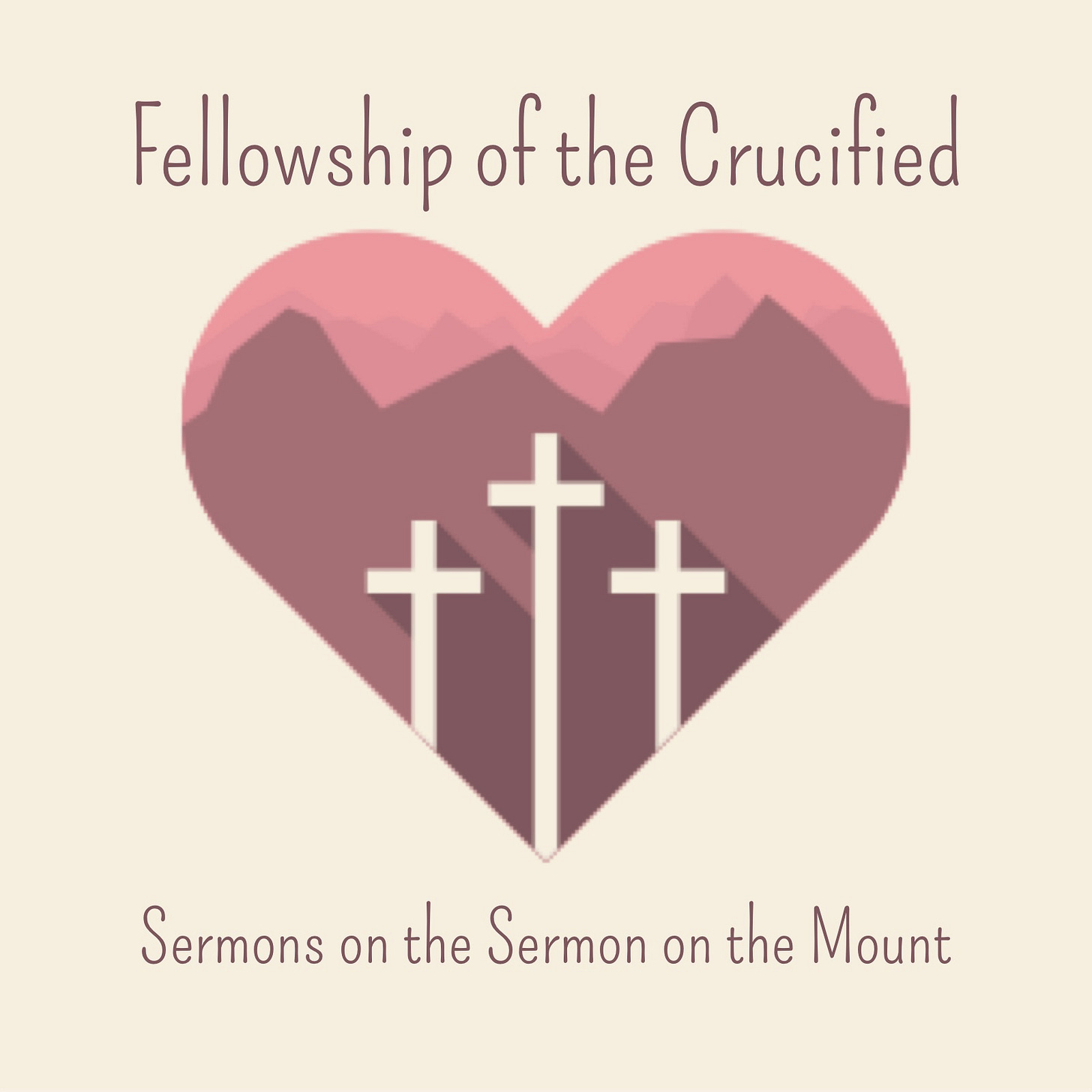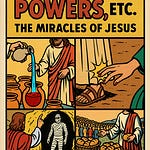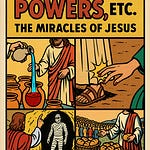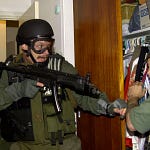Fourth Sunday after Pentecost: Matthew 5.6
When I was about to begin serving as a pastor for the first time two decades ago, I decided to ask one of my seminary professors, Dr. Jim Stewart, for advice on what to do when starting out in a congregation.
You might’ve already guessed from observing me these past four years that how to pastor a congregation is not actually something they teach you in seminary.
Dr. Stewart looked top heavy with his mop of curly white hair on top of his short, heavyset body. He wore thick, brown glasses, which when removed revealed that Dr.. Stewart was a dead ringer for the actor Charles Durning who played Doc Hopper in the Muppet Movie.
After class one day, I walked up to Dr. Stewart as he was stuffing papers into his leather satchel and I asked him for advice on beginning my ministry in my first, full-time congregation. He answered so quickly I almost thought he was responding to someone else’s question, “Don’t do or say anything provocative. Don’t ruffle feathers. Don’t upset anyone. Don’t rock the boat. Be as inoffensive, un-opinionated, and ordinary as possible.”
Obviously, it’s advice I’ve yet to heed.
Dr. Stewart slid more papers into his leather satchel as I processed what sounded to me like an insult in the form of counsel. He looked up at me and smiled and said: “Don’t worry, that’s not a comment about you. I give the same advice to every new pastor. And don’t forget the most important advice of all— Don’t change ANYTHING for the first 6 months. Earn their trust.“
I can’t speak for the other denominations whose clergy Dr. Stewart has advised over the years, but I can say that his words are frustrated by the fact that United Methodist bishops appoint their pastors to churches during the last week of June and first week of July. So in the United Methodist Church new clergy are making just their first impressions over Independence Day weekend, a time when most folks skip church and those who do come to worship often do so in order to give their thanks and praise to America and not the Lord.
I packed Dr.. Stewart’s advice along with my books and my belongings and I took it with me to my new church.
On Day One, my secretary first walked me through the church directory. Second, she gave me the skinny on church gossip. And third, she informed me that, as the new pastor in town, I was scheduled to preach the sermon at the annual, ecumenical Independence Day Service.
“But Independence Day isn’t even a Christian holiday,” I said in a tone of voice that was equal parts exasperation and naïveté.
Barbara, my secretary, just stared at me, saying nothing, as though she were a tarot card reader foreseeing both my imminent, self-destructive implosion.
“Bless your heart,” she said and patted me on the shoulder.
Like all things Independence Day, the ecumenical service was held outdoors in a city park. It may surprise you to hear that I arrived early for the service. I parked my car and could hear that the compact disc of Lee Greenwood’s “Proud to be an American” was skipping on the second verse as it boomed through the speakers.
“If you can’t get that CD to play,” I said to the parking lot greeter, “just let me know— I’ve got a Dixie Chicks album here in the car we could use.”
The man with the beer-belly and the salt-and-pepper mustache started at me like I’d just given him smallpox.
When I got to the pavilion area, I spotted a large, wooden cross in the center of the stage— the kind of cross you’d see on the side of the highway next to a barn adorned with election conspiracy signs. But this cross, that day, had a large, car dealership-sized American flag draped over the horizontal beam.
I swear, in that instant, Dr. Stewart appeared to me like Yoda to Luke Skywalker. And starting at old glory covering up the old rugged cross, I heard Dr. Stewart’s advice ring in the air, “Don’t ruffle feathers. Don’t betray an opinion. Be as inoffensive and ordinary as possible.”
I walked up to a guy who looked like the master of ceremonies, a Pentecostal preacher it turned out. I introduced myself and then I said, “Say, maybe we should take the flag off the cross before people show up for the service and get irate that we’re committing idolatry. I mean, Moses sure didn’t like coming down off the mountain and finding everyone with their hands in the air for a Golden Calf, am I right?”
“Bless your heart. Why would anyone get upset?” the preacher laughed in condescension, “We’ve got the Christian flag here too.”
He gestured towards it and I looked over and saw a limp, yellowed flag that looked to stapled the handle of an industrial broom.
I nodded to him.
“My wife’s in law school,” I said to him, “and so I’m learning all kinds of new things. For instance, did you know that according to the U.S. Flag Code no other flag— not even the Christian flag at a Christian worship service or in a Christian sanctuary— can have a place of prominence over the American flag?”
The preacher stared at me like, I imagine, Darwin once marveled at the creatures he discovered on the Galápagos Islands. And then an expression crept over his face and I couldn’t help but think it bore a striking resemblance to the tarot card reader’s face that Barbara had flashed in my office just the the other day.
I was about to respond at least as colorfully as the stars and stripes, but then I saw Dr. Stewart appear in an angelic haze, like Obi Wan to young Luke, and I heard Dr. Stewart say, “Don’t upset anyone.”
So I said nothing more.
A couple hundred people gathered for the ecumenical Independence Day Service, which began with a greeting by a Brethren pastor. Before we realized what was happening, the Brethren pastor had slid from words of welcome into a “Fatherwejust” prayer— a prayer that needed not Jesus to be prayed. His prayer was a confession, a lament, of all the ways America has absconded from the Christian values of its founding. His lament was exhaustive and exhausting, and all the while I gripped my Bible and sighed, trying to conjure the image of Dr. Stewart.
After the prayer, we sang “America” and the “Battle Hymn of the Republic,” which, in hindsight, were the high points of the service.
And after the “glory, glory, hallelujahs,” the local Episcopal priest got up and offered another prayer.
The priest’s prayer, which also did not need Jesus to be prayed, thanked, God that we live in a nation where we’re free to pursue what sounded to me like policy positions from the Democratic Party platform. Again, I sighed and death-gripped my Bible, waiting for someone— anyone— to invite Jesus to this service we were allegedly offering in his name.
But it never did.
Next, the Master of Ceremonies, the Pentecostal preacher, stood in front of the flag draped cross and read the Declaration of Independence, and when he finished, he said, “Now, I’d like to invite the new Methodist pastor, Rev James MacChelly, to come up and preach for us.”
I’d come that day armed with a few pages of a sermon on serving your neighbor, a harmless, vanilla homily I could’ve easily delivered at a Kiwanis meeting as at a worship service. But walking up to the outsized cross that bore a flag instead of Jesus’s body, I discerned a different message was needed.
I chose to change gears and improvise.
I called an audible.
I decided I should trust the Holy Spirit not to let me crash and burn.
And I’ve preached from a manuscript ever since.
First, I read not from the Golden Rule as I’d planned, but from the Apostle Paul, “God raised Jesus Christ from the dead and exalted him to sit at the right hand of the Father and given him the name that is above every name; so that, at the name of Jesus every knee shall bow and every tongue confess that Jesus Christ is Lord.”
When I finished reading from Romans, a few people muttered “Amen,” which I foolishly took as a promising sign.
And then I began:
“I know a lot of you are expecting me to speak about America or politics or patriotism. And there’s nothing wrong with those things. But I’m a preacher. The Risen Christ called me— as real as you are to me right now— to proclaim not America but him, his Lordship.”
I thought it was an incontrovertible beginning, but just then I looked out in the crowd and saw Dr. Stewart sitting on a lawn chair near the third row.
He was shaking his head and mouthing the words, “Don’t rock the boat.”
But I ignored him.
“Christ Jesus called me not to give lip service to “We the people” but to preach the Gospel,” I hollered into the handheld mic, “and the Gospel is that Jesus Christ is Lord.”
Suddenly they all appeared like tarot readers appraising the ten of swords card I’d auspiciously drawn.
“The Gospel isn’t that Jesus is going to be Lord one day,” I preached, “The Gospel isn’t that Jesus will be Lord after he returns to Earth to rapture us off to the great bye and bye. The Gospel is that Jesus Christ, who sits at the right hand of the Father, is Lord. Here and now. The Gospel isn’t that Jesus rules in heaven; the Gospel is that Jesus Christ rules the nations of the world from heaven.”
Dr. Stewart sat in his lawn chair, giving me a sad, “it’s-not-too-late-to-turn-back” look.
But it was too late.
Or rather, I was as stubborn then as I am today.
So I doubled-down.
“You see,” I said, “to confess that Jesus Christ is Lord is to profess that something fundamental has changed in the world, something to which we’re invited to believe and around which we’re called to story our lives and for which, if necessary, we’re expected to sacrifice our lives. To confess that Jesus Christ is Lord is to profess that, at Easter, God permanently replaced the way of Caesar, the way of the world, with the way of Jesus, a way that blesses the poor, a way that comforts those who mourn, a way that wages peace, a way where the pursuit of happiness is not to choose whatever you want to do but to hunger and thirst for justice— God’s justice. And God’s justice, made flesh, is Jesus Christ.”
I looked out and saw my new secretary, Barbara, forcing a fake, shotgun wedding smile across her face before she gave me two thumbs up.
“I was commissioned to preach the Gospel,” I said. “And the Gospel— the Gospel of Paul and Peter and James and John and Luke and Mark and Matthew— is that Jesus Christ is Lord. And in their day the Gospel announcement had a counter-cultural correlative, Jesus is Lord, and Caesar is not.”
I could tell from the crinkled brows in the crowd that they could not yet tell if or how I was subverting their expectations.
So I decided to make it plain, “And in our day, the Gospel has a counter-cultural correlative to it too. Jesus is Lord, and “We the people” are not. Jesus is Lord, and the Democratic Party is not. Jesus is Lord, and the Republican Party is not.”
Just then, a lady in the front row, wearing a tricornered hat and a t-shirt that said, “Gun Control Means Using Two Hands,” stared daggers at me.
I looked at her and said, “Jesus Christ is the Lord of Time. He is the Alpha and the Omega, the Beginning and the End, the First and the Last. And America, though it’s deserving of our pride and our commitment and our gratitude, is nevertheless part of what scripture calls the Old Age. And by Cross and Resurrection the Old Age is passing away.
“God bless America!” someone in the back shouted out in defiance.
I nodded, somewhat conciliatory.
“As wonderful as this nation is,” I said, “we are not God’s Beloved because Jesus Christ is God’s Beloved and his Body is spread throughout the world, which makes every Christian an exile in their homeland and every church an embassy— sovereign territory in the nation of another nation.”
Every church is an embassy, sovereign territory within the nation of an altogether different kingdom.
The crinkled brows in the crowd had turned to crossed arms and angry faces, and a few people got up and left. The Lee Greenwood CD, idling on pause, yawped awake with “At least I know I’m free.” Dr. Stewart was now sitting in his lawn chair mouthing the words, “I told you so.”
I’d lost them.
“Bless your hearts,” I muttered into the microphone.
“What was that?!”
“Uh, nevermind.”
I knew I had to steer this wreck of a sermon off the road as quickly as possible.
So I said, “Independence Day Weekend is as good a time as any to remember that as baptized Christians we carry two passports. We have dual citizenship, yet God is a jealous God and his Son is a Lord who does not share sovereignty.
You may not worship a Golden Calf, but I’m willing to wager a whole lot of you are at risk of giving too much of your fidelity to elephants and donkeys.
For Christians, what’s dangerous— spiritually dangerous, what jeopardizes your salvation— is not your patriotism per se but the color of it (Red or Blue).”
Even the Episcopal priest, wearing a rainbow stole over his clergy collar, looked at me like I’d just given him heartburn.
“But America is a City on a Hill— Ronnie Reagan said so,” someone shouted at me, “We’re a Christian nation.”
I ignored it.
“Independence Day is as good a time as any to remember that as baptized Christians, our politics are not determined by Caesar or Rome or Washington. As baptized Christians, our politics— our way being in the world— are conformed to the character of the crucified life that God elected to raise from the dead. Independence Day is as good a time as any to remember that you can be a proud American. You can be thankful for your country. You can serve your country. But if you’re baptized— if your head as been wet with the promises of God— then you’ve pledged your allegiance to Jesus Christ, and your ultimate citizenship is to his Kingdom. Even as you celebrate the thirteen colonies’s independence, don’t forget that your primary duty as the community of disciples is to colonize the earth with the way of Jesus Christ. That’s what we pray when we pray, “Thy Kingdom come…”
I thought that sounded like a good place to end so I quickly said, “In the name of the Father, Son and Holy Spirit.”
And the gathered crowd responded with “harummphhhhhhhhhhhhh…….”
I looked up in the crowd and saw that Dr. Stewart, along with most of the crowd, was gone.
No doubt, his is the better sermon, but Jesus on the Mount of Beatitudes makes the same point I attempted to register in my own. At his baptism, like Israel in the exodus, Jesus has crossed the Jordan River. Like the Israelites, Jesus has sojourned in the wilderness where he learned to live by faith alone in his Father. And now he’s on a mountain, like Moses, issuing a description of the life that shall characterize God’s pilgrim people.
By calling twelve disciples from the crowds, Jesus is reconstituting the People of Israel, which means Jesus is not only creating a distinct people within the Empire but an alternative nation within the nation of Israel.
He’s constituting a nation within the nation.
A nation within all nations.
It’s here in the beatitudes.
As Stanley Hauerwas writes:
“We misunderstand the beatitudes if we understand them as a scheme of performance. One cannot simply, by making up his mind, set out to mourn or to be persecuted for righteousness’s sake. Jesus is rather saying, “There are some who hunger and thirst for righteousness: good for them! For the Kingdom is at hand and they shall be filled. There are those who make peace; good for them, for the Kingdom is at hand and it shall be known that they are God’s children.”
It’s not Law. It’s Gospel.
It’s not prescriptive. It’s descriptive.
Of the community Christ is calling to bear witness to the Kingdom.
After the ecumenical Independence Day service ended, the pastors formed a receiving line to shake hands with folks as they left.
I was at the far end of the line. Not wanting any guilt by association, the other pastors had left ample buffer space between them and me. Most people just walked by me and glared at me like I was a payday loan salesman (or a Howard Dean supporter).
A couple of people joked, “I wouldn’t unpack my new office just yet if I were you Rev. MacChellee.” Finally a man in his sixties came up to me. He had a high and tight haircut and was wearing a Hawaiian print shirt and a Marine Corps tattoo on his forearm.
And he said, “Preacher, I just want to thank you.”
“Thank me? For what exactly?”
“I never have understood how Jesus got himself executed by being nothing more than a first century Mr. Rogers, telling us to love our neighbors and what not. But listening to you today, I think I understand why people wanted to kill him.”
“Look,” I said, “I’m sorry. It’s in my nature to be contrary. I should’ve listened to Dr. Stewart.”
“I don’t know who Dr. Stewart is,” he replied, “But I’m serious. People say freedom means we’re free to do whatever we want, but doing whatever I want sounds like hell to me. Take it from alcoholic: you living in a world where freedom means I can do whatever I want is surely hell. If what you said is true— about Jesus creating a peculiar people amidst we the people— then I’ve been given something to do and being given something to do feels like a gift. Thank you.”
“That’s a shorter, clearer sermon than I managed to preach,” I told him, “and it has the added benefit of being the gospel.”
“You could maybe stand to preach more succinctly,” he agreed, “Still you helped me see something for the first time; or maybe, I saw something in spite of your sermon.”
“See what?”
“I’ve always thought of Jesus’s cross and resurrection as some kind of exchange between himself and God, but that’s always felt to me like God’s just playing games with himself and we’re just left— what— believing in it. If what you said is true, then Jesus’s cross and resurrection make us agents in the world, agents in God’s history, agents of reconciliation. For the first time, I think I know understand what words like faith and grace mean.”
“What do you think they mean?”
“To be taken up into this Story I didn’t get to choose for myself.”
“Oh, um, well clearly that was what I was attempting to do in my sermon,” I lied.
He laughed and nodded, “Isn’t it funny how Jesus makes it so we can’t find our way in that Story without depending on one another. That must be part of what it means to be saved. Well, anyway, thank you for the sermon.”
“Thank you for your sermon,” I mumbled.
“And a word of advice. You’re new and all. Maybe shoot for a little less in-your-face-offensiveness for the first six months or so.”
“What novel advice,” I said as he walked away and disappeared, like the sower’s seed, into the crowd.













